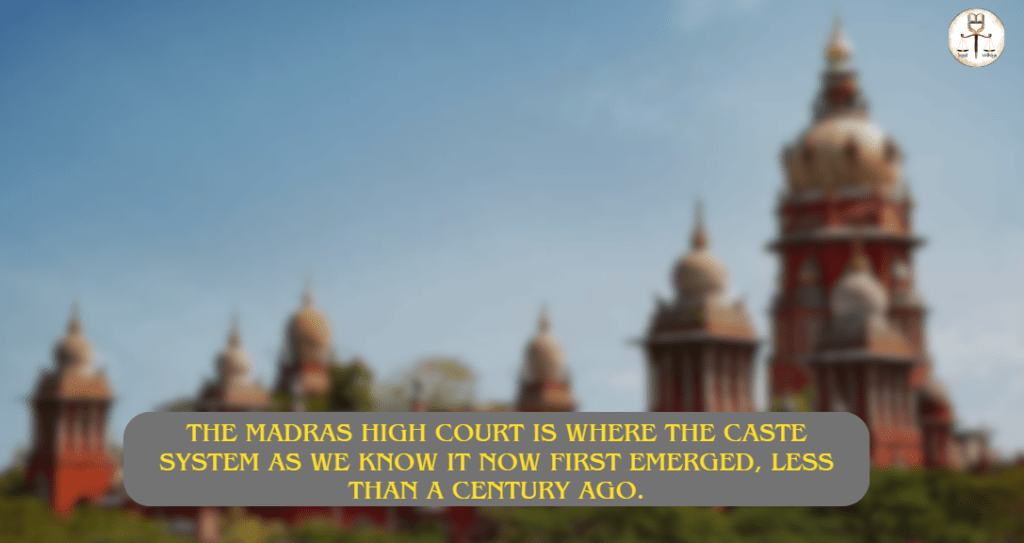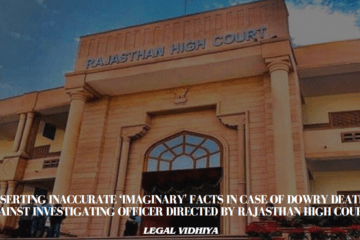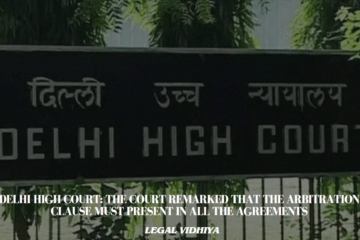
The Madras High Court said that Sanatana Dharma implies an uplifted, noble, and virtuous rule of behavior, while strongly criticizing TN Minister Udayanidhi Stalin, Minister Sekar Babu, and MP A Raja for their recent utterances against the Sanatana Dharma. As a result, the court believed that the Ministers’ and MP’s misinterpretation of Sanatana Dharma’s dividing meaning was incorrect.
The court stated that the narrow interpretation of the term “Sanatana Dharma” is obviously incorrect because it refers to an everlasting, universal code of behavior that is morally upright, honorable, and virtuous.
Judge Anita Sumanth went on to say that while it was true that the caste system had some injustices that needed to be avoided in modern society, the Varna System could not be solely held responsible for the terrible conditions because the caste system was not more than a century old.
“This Court agrees unequivocally that there are inequities based on caste present in society today and that they are to be eschewed. However, the origins of the caste system as we know it today are less than a century old…Can one lay the blame for these torturous circumstances entirely on the ancient Varna system? The answer is emphatically in the negative,” the court observed.
The Court was answering the respondents’ claim that by making remarks regarding “Sanatana Dharma,” they were disparaging the caste system. The court further stated that caste-based division was pervasive in the State and that individuals in positions of authority should work to eradicate such evils rather than inflaming casteist fervor, which would be detrimental to the interests of the State. The court noted that the leaders needed to establish an example if they wished to govern a nation where resources were shared equally.
The effort of any reasonable, fair and well intentioned leader must be aimed towards identifying the commonalities of different sections of the people so as to unite, rather than divide them. Though criticism is essential for growth, it must be constructive to ensure that progress, rather than destruction, is the destination,” the court noted.
The court stated that the varna system was designed to create division based on occupation, which was then required for the proper operation of society, rather by birth. But according to the court, there was no use for such a classification in the modern world. The court also emphasized the need for honest reflection in order to develop new strategies for redressing injustices and promoting equality, as well as the necessity of repair and damage management in order to address historical injustices.
“The varna system does not contemplate division on the basis of birth, but based on avocation. The system was designed to work towards the smooth functioning of society centuries ago where the chief avocations were identified based on the then needs of society. The relevance of such a system today, is itself moot.”
The court further stated that leaders of all faiths may recognize the general areas of agreement among the various branches of their own faiths rather than concentrating on the specific distinctions between them, and that the goal of faith was to unite rather than divide. The court further stated that the leaders’ attempt to bring people together rather than drive them apart determines their sincerity. The statements were issued in response to petitions asking for the expulsion of MP A Raja, Minister Sekar Babu, and TN Minister Udayanidhi Stalin for their remarks against “Sanatana Dharma.” Because no legal action has been filed to disqualify them as of yet, the Court declined to issue a writ of quo warrant for their removal.
There’s no point in going over the past again.
Justice Sumanth further observed :
“It is a matter of record that there have been severe ravages by fellowmen, at differing points in time, to different sections of society, all in the name of supremacy and domination of caste as well as a response to perceived domination by certain castes. I refrain from chronicling the details, as not being directly relevant to the subject matter of this order and also for the reason that there is no benefit to be gained in re-visiting past events and episodes that have been the source of pain,
trauma and deep sadness to sections of people at different points in time.
Suffice it to say that such events must be deprecated and this Court does so unequivocally. There must be repair and damage control on an ongoing basis to correct the unfairness of the past. There must, consequently, also be sincere introspection on the methods that can be evolved to correct injustices and foster equality, today and going forward.”
CASE NAME – Kishore Kumar vs .The Secretary,Tamil Nadu Legislative Assembly
NAME – KARUBAKI MOHANTY, B.A.LLB (HONS), SOA NATIONAL INSTITUTE OF LAW, BHUBANESWAR, INTERN UNDER LEGAL VIDHIYA.
Disclaimer: The materials provided herein are intended solely for informational purposes. Accessing or using the site or the materials does not establish an attorney-client relationship. The information presented on this site is not to be construed as legal or professional advice, and it should not be relied upon for such purposes or used as a substitute for advice from a licensed attorney in your state. Additionally, the viewpoint presented by the author is of a personal nature.




0 Comments